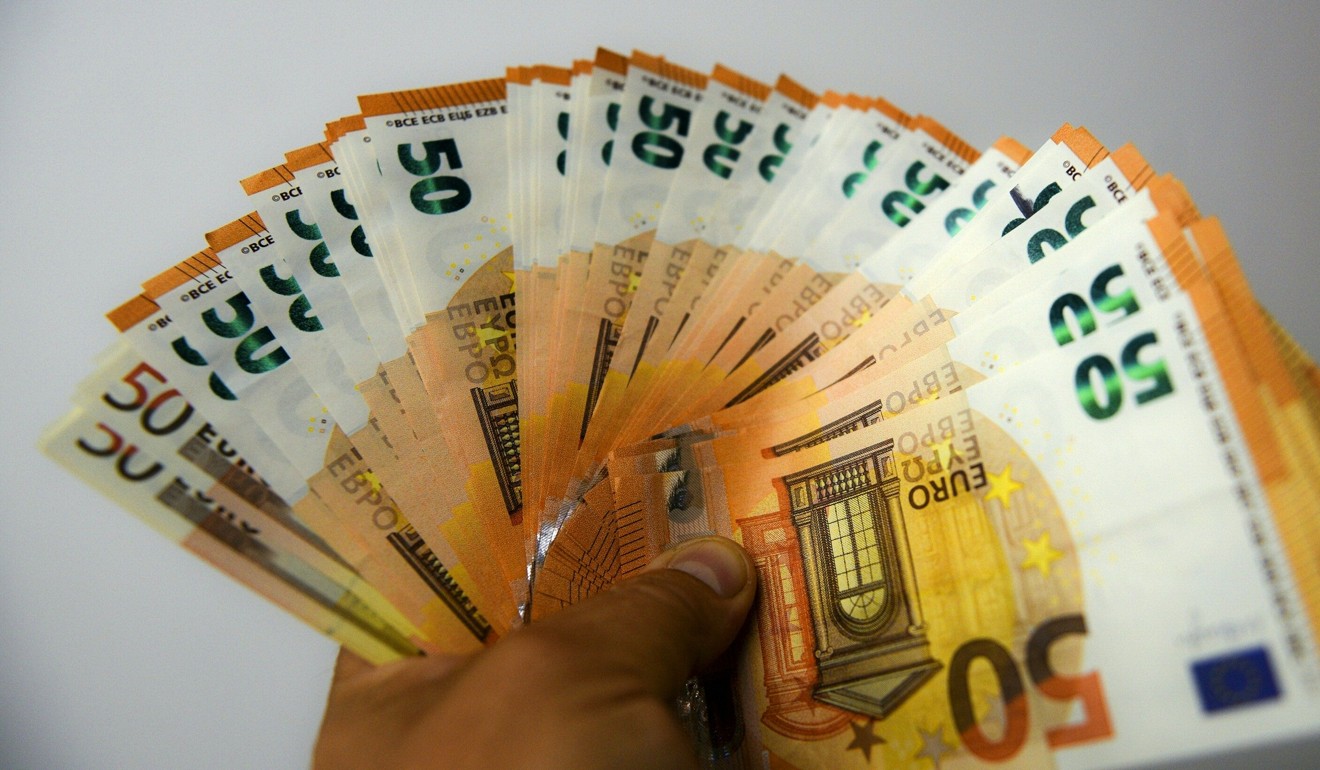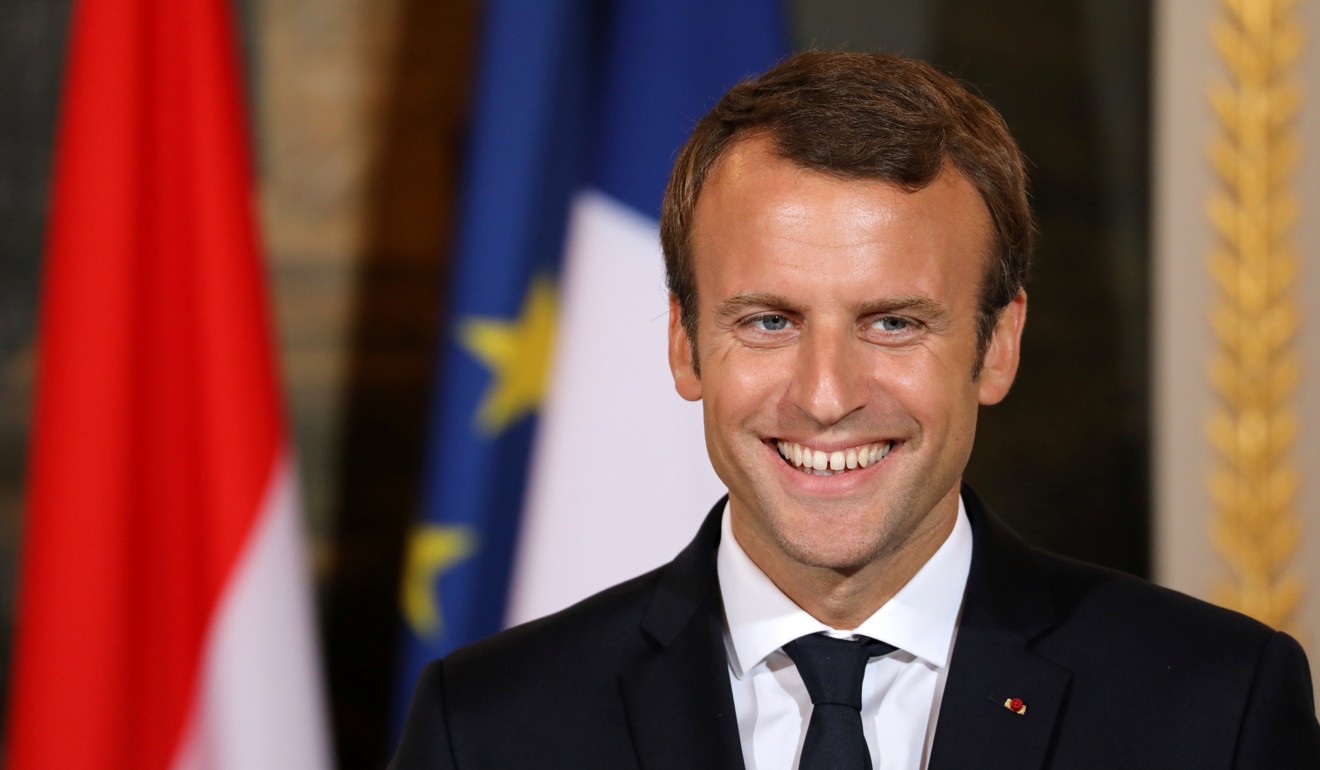
Winter is coming to the eurozone, so be cautious
‘Make no mistake, the existential problems in the eurozone that caused the sovereign debt crisis have not been fixed - far from it’

It is not difficult to be bullish on Europe.
Last Friday, the publication of a purchasing managers’ index (PMI) survey compiled by IHS Markit, a data provider, revealed that in August the eurozone’s manufacturing sector expanded at one of its fastest rates since April 2011 - three months before Europe’s sovereign debt crisis escalated dramatically.
The survey noted that the eurozone has become a key driver of global growth, with “manufacturing output growing at an annual rate of approximately 4 per cent. Producers across the region are benefiting from rising domestic demand as economic recoveries gain momentum, as well as surging export sales.” More encouragingly, foreign demand and employment in the sector are improving in all 19 countries in the bloc - even in Italy, the most politically and economically vulnerable country.
Economic confidence in Europe is at its highest level in a decade while inflation - which has been worryingly subdued over the past several months despite the pick-up in growth - is rising again, with the headline rate increasing to 1.5 per cent in August, the highest reading in four months.
Most importantly, the eurozone is looking more and more stable politically, partly because of the victory of the reform-minded and pro-European Emmanuel Macron in France’s crucial presidential election in May, but also because of Donald Trump’s crisis-ridden presidency and the threat of policy paralysis in Washington.

Yet cracks in Europe’s impressive recovery are starting to show.
The most conspicuous one is the soaring euro which has shot up nearly 12 per cent against the dollar since early April - the single currency is on track for its best year against the greenback since its launch in 1999 - and could even reach parity with the British pound by the end of this year, according to HSBC.
The sharp appreciation of the euro is partly the flip side of the plunge in the dollar. The dollar index - a gauge of the greenback’s performance against a basket of other currencies, with the euro’s weighting amounting to 57 per cent - has fallen sharply mainly because of Trump’s political woes. This has brought about a dramatic shift in global investors’ positioning in foreign exchange markets. While a “long”, or overweight, position in the dollar was one of the most “crowded trades” as recently as April, a long position in the euro has suddenly become one of the popular bets in markets, according to the latest fund manager survey by Bank of America Merrill Lynch.
Yet just as investors belatedly recognised that they were overly bullish on the dollar, they are now starting to fret about the adverse impact of a surging euro on the region’s exports and corporate earnings.
Eurozone stocks have already fallen nearly 6 per cent since late April. Moreover, over the past fortnight, investors have withdrawn nearly US$1.5 billion from European equity funds, according to EPFR Global, a data provider, the heaviest outflows since the rally in European assets began in March.
There are other, more important, reasons why investor caution on Europe is warranted.
The eurozone is not half as stable as the US$30 billion of inflows into European stock funds this year would suggest.

In order for the economic and political governance of Europe’s fragile single currency area to be put on a much firmer footing, there needs to be a “grand bargain” between France and Germany, the motor of European integration. Yet Macron’s popularity is already plummeting - and this is before he takes on France’s combative trade unions to reform the country’s labour market - while there is mounting political opposition in Berlin to further burden-sharing in which the German taxpayer ends up footing the bill for financially vulnerable countries in the bloc, such as Italy.
Make no mistake, the existential problems in the eurozone that caused the sovereign debt crisis have not been fixed - far from it.
Another reason for investors to be cautious is the acute dilemma faced by the European Central Bank, which holds its regular policy meeting on Thursday.
Not only is the strong euro making it even more difficult for Europe’s central bank to hit its 2 per cent inflation target, the withdrawal of monetary stimulus - which is likely to begin in the first-half of next year - will remove the most important source of financial stability in the eurozone since the sovereign debt crisis.
Investors already believe that a policy mistake by the European Central Bank is the biggest “tail risk” in markets, according to the fund manager survey.
The recent deterioration in sentiment towards the eurozone is likely to be a foretaste of things to come. Investors in Europe should buckle up for a much bumpier ride in the coming months.
Nicholas Spiro is a partner at Lauressa Advisory